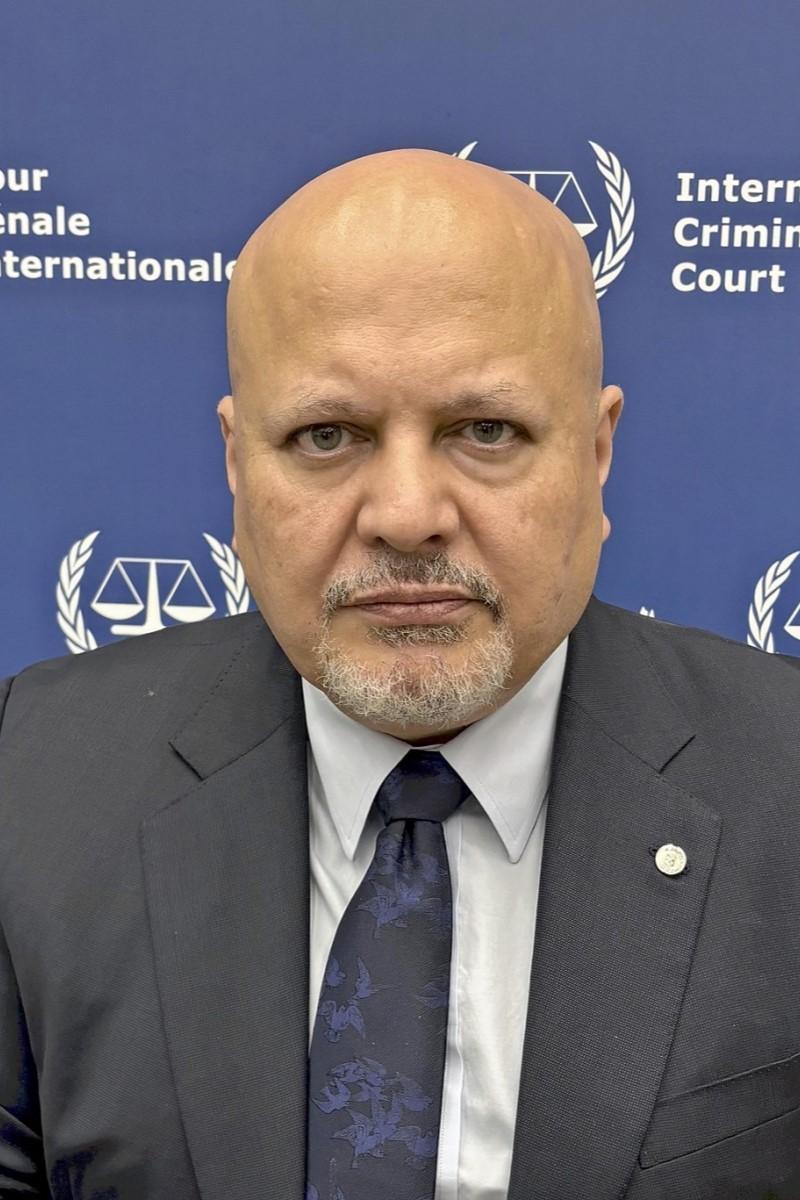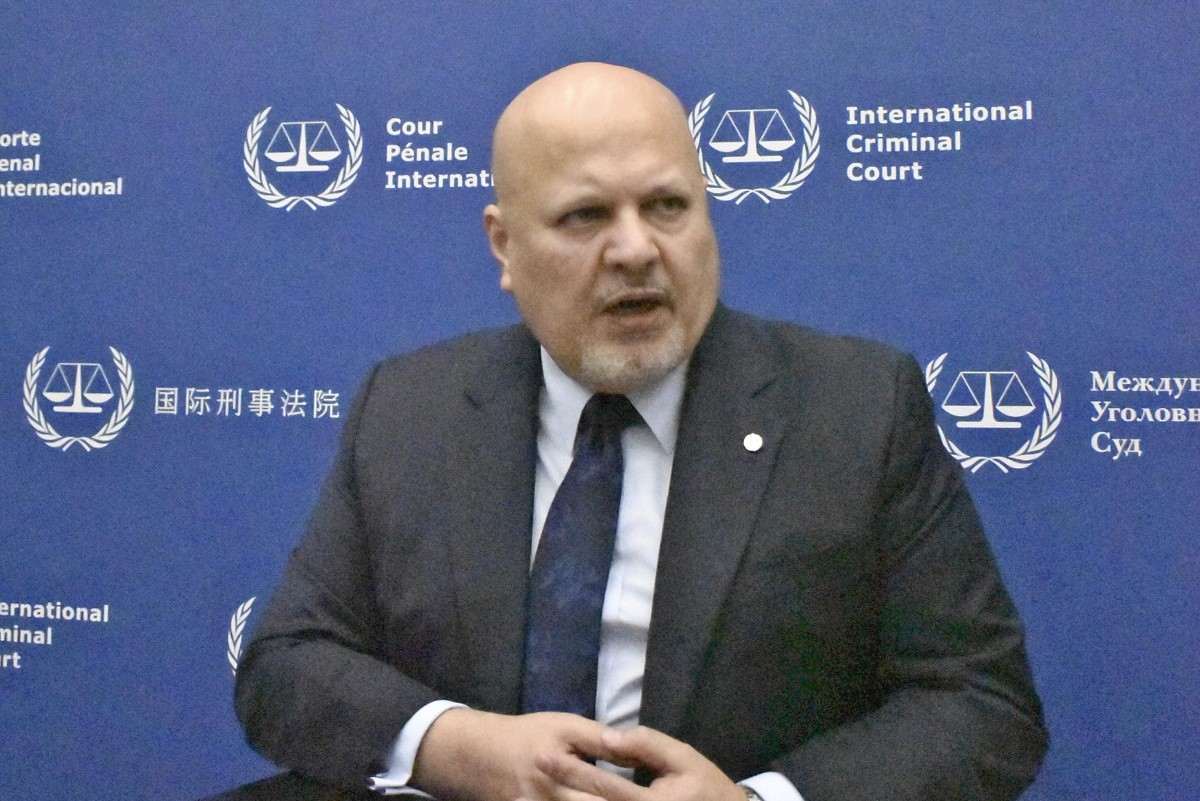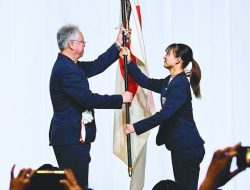ICC Prosecutor Expresses Concern Over U.S. Pressure; Khan Seeks Japan’s Cooperation In Yomiuri Interview

International Criminal Court Prosecutor Karim Khan speaks during an interview with The Yomiuri Shimbun in The Hague on Monday.
16:28 JST, September 4, 2024
THE HAGUE — International Criminal Court Prosecutor Karim Khan expressed concern over pressure the court is facing from the United States regarding its investigations into Israel’s attacks on the Palestinian territory of Gaza in a recent interview with The Yomiuri Shimbun in The Hague.
Speaking about the impact of such pressure on the rule of law, Khan said, “You cannot allow an attack on the court … then you have no rules-based system.”
The ICC is an international institution that tries individuals charged with war crimes. Khan leads its Office of the Prosecutors, which requested arrest warrants in May against Israeli Prime Minister Benjamin Netanyahu and another Israeli official for allegedly causing the humanitarian crisis in Gaza.
The United States, which supports Israel, is not a member of the ICC. The U.S. House of Representatives in June passed a bill by a majority vote to impose sanctions on ICC officials. The bill will become a law if it is passed in the Senate and signed by the president.
In the interview on Monday, Khan revealed that ICC officials have been receiving personal threats from Russian and Israeli supporters.
Expressing alarm over their potential broader impact, Khan said, “If we allow these types of attacks … threats … to dismantle or erode the legal institutions that have been built since the Second World War, does anybody believe it will end with the International Criminal Court?”
Pointing out that Japan is the biggest funder of the ICC, Khan said: “This court is your child. It’s Japan’s child. We are part of you, and you are part of us.” He then urged Japan’s cooperation in influencing the United States.
Russian President Vladimir Putin, for whom the ICC has issued an arrest warrant, has been visiting ICC member state Mongolia since Monday. Member states are obligated to take him into custody, but Mongolia has not done so. “It’s better for the country and better for the world, almost invariably, to have the courage to stand on principle rather than standing on expediency,” Khan said, calling on Mongolia to make an arrest.
Top Articles in World
-

Israeli Ambassador to Japan Speaks about Japan’s Role in the Reconstruction of Gaza
-

Videos Plagiarized, Reposted with False Subtitles Claiming ‘Ryukyu Belongs to China’; Anti-China False Information Also Posted in Japan
-

Chinese Embassy in Japan Reiterates Call for Chinese People to Refrain from Traveling to Japan; Call Comes in Wake of ¥400 Mil. Robbery
-

Russia: Visa Required for Visiting Graves in Northern Territories, Lifting of Sanctions Also Necessary
-

Nepal Bus Crash Kills 19 People, Injures 25 Including One Japanese National
JN ACCESS RANKING
-

Producer Behind Pop Group XG Arrested for Cocaine Possession
-

Japan PM Takaichi’s Cabinet Resigns en Masse
-

Man Infected with Measles Reportedly Dined at Restaurant in Tokyo Station
-

Israeli Ambassador to Japan Speaks about Japan’s Role in the Reconstruction of Gaza
-

Videos Plagiarized, Reposted with False Subtitles Claiming ‘Ryukyu Belongs to China’; Anti-China False Information Also Posted in Japan

























